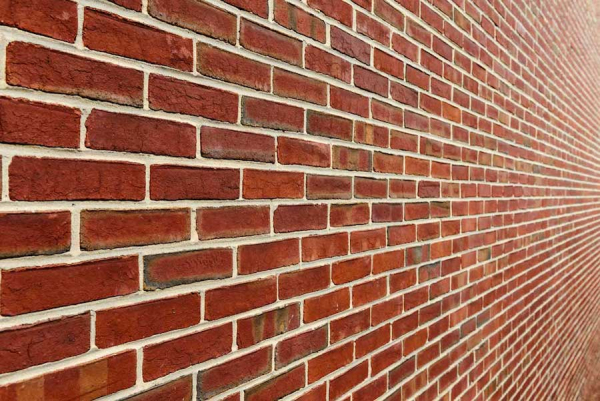Hiring a good tuckpointing contractor is crucial for several reasons:
Quality Workmanship: Tuckpointing is a specialized skill that involves repairing and restoring the mortar joints in brick or stone masonry. A skilled contractor will have the expertise and experience to perform the work with precision, ensuring that the finished product looks good and functions effectively.
Structural Integrity: Tuckpointing plays a significant role in maintaining the structural integrity of a building. When mortar joints deteriorate, it can lead to water infiltration, which can cause further damage to the masonry, compromising the stability of the structure. A good contractor will properly assess the condition of the mortar and provide the necessary repairs to ensure the building's stability.
Water Resistance: Tuckpointing is essential for maintaining the water resistance of a building. Properly repaired mortar joints help prevent water from seeping into the walls, which can lead to mold growth, rot, and other moisture-related problems. A skilled contractor will use the right materials and techniques to create a watertight seal.
Aesthetic Appeal: Tuckpointing is not just about functionality; it also contributes to the appearance of a building. A skilled contractor can match the new mortar color and style to the existing masonry, ensuring a seamless and attractive finish. This attention to detail can enhance the curb appeal and value of the property.
Longevity: When tuckpointing is done correctly, it can extend the life of a building's masonry. A good contractor will use high-quality materials and craftsmanship that can withstand the test of time, reducing the need for frequent repairs.
Cost-Efficiency: While hiring a highly skilled tuckpointing contractor may come with a higher upfront cost, it can ultimately save you money in the long run. Properly executed tuckpointing can prevent more extensive and costly repairs or replacements down the road.
Compliance with Codes and Regulations: A reputable contractor will be knowledgeable about local building codes and regulations related to tuckpointing. Hiring a professional ensures that the work is done in compliance with these standards, reducing the risk of legal issues or penalties.
Safety: Tuckpointing often involves working at heights and using specialized equipment. A professional contractor will prioritize safety by following industry best practices, reducing the risk of accidents or injuries during the project.
In summary, hiring a good tuckpointing contractor is essential to ensure the longevity, structural integrity, and aesthetic appeal of your building. It's an investment in the maintenance and preservation of your property, which can save you money and headaches in the long term. When choosing a contractor, be sure to research their qualifications, check references, and ask for examples of their past work to ensure you're hiring the right professional for the job.
Check Attic Ventilation: Proper attic ventilation is crucial for maintaining your roof's integrity. Ensure that your attic has adequate ventilation to prevent heat and moisture buildup.
Look for Signs of Mold or Algae: Mold and algae growth on your roof can be detrimental. If you see any signs of this, consider cleaning and treating your roof to prevent further growth.
Professional Inspection: It's a good idea to have a professional roofing contractor inspect your roof periodically, especially if you're not comfortable doing it yourself. They can identify issues that may not be immediately visible.
Roof Cleaning: In areas prone to moss or algae growth, consider having your roof professionally cleaned. Do not use pressure washers, as they can damage the roofing material.
Keep Records: Maintain a record of all inspections, repairs, and maintenance activities related to your roof. This can be helpful for tracking the roof's condition and for warranty purposes.
Address Ice Dams: In colder climates, take measures to prevent ice dams, which can damage your roof. Proper insulation and ventilation in the attic can help. Roof Coating: In some cases, applying a reflective roof coating can extend the life of your roof and improve energy efficiency by reducing heat absorption. Remember that safety is paramount when conducting roof maintenance. If you are uncomfortable with heights or unsure about how to safely inspect or repair your roof, it's best to hire a professional roofing contractor. Regular maintenance can help you avoid costly roof repairs and ensure that your home remains protected from the elements
What is a metal roof?
A metal roof is a roofing system made primarily from metal materials, such as steel, aluminum, copper, or zinc. Metal roofs are known for their durability, longevity, and resistance to various environmental elements. They are commonly used in residential, commercial, and industrial buildings. Here are some key characteristics and benefits of metal roofs:
Durability: Metal roofs are highly durable and can last for 50 years or more with proper maintenance. They are resistant to rust, corrosion, and rot.
Longevity: Metal roofs have a longer lifespan compared to many other roofing materials, reducing the need for frequent replacements.
Weather Resistance: Metal roofs can withstand harsh weather conditions, including heavy rain, snow, hail, and high winds. They are also fire-resistant.
Energy Efficiency: Some metal roofs are designed with reflective coatings that can help reduce heat absorption, leading to lower cooling costs in hot climates.

Low Maintenance: Metal roofs require minimal maintenance compared to other roofing materials. Periodic inspections and cleaning are typically all that's needed.
Eco-Friendly: Metal roofing materials are often recyclable, and they can be made from recycled materials. They are also energy-efficient due to their reflective properties.
Variety of Styles: Metal roofs come in various styles, including standing seam, corrugated, and shingle profiles. They can be painted or coated in different colors to match architectural aesthetics.
Lightweight: Metal roofing is relatively lightweight compared to some other roofing materials, which can reduce the stress on the building's structure.
Resale Value: Installing a metal roof can increase the resale value of a property due to its durability and long lifespan.
Sustainability: Metal roofs can contribute to sustainability efforts by reducing the frequency of roof replacements and the need for disposal of old roofing materials.
While metal roofs offer many advantages, they also come with some considerations. They can be more expensive to install initially than traditional asphalt shingles, and the noise from rain or hail hitting the metal surface may be a concern for some homeowners. Additionally, proper installation is crucial to prevent issues like leaks or moisture buildup. It's essential to consult with a professional roofing contractor to determine if a metal roof is suitable for your specific needs and climate conditions.



